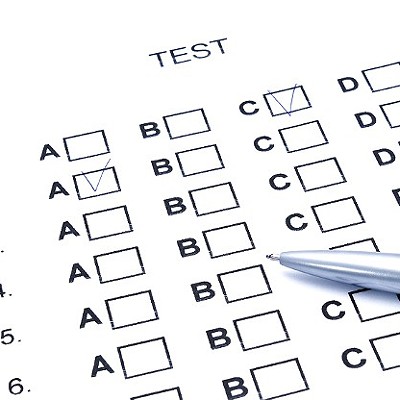Monday, May 9, 2016
Charter Schools Have Lower Graduation Rates Than District Schools (and That Doesn't Mean a Thing)
The next time someone tells you charter schools are superior to district schools—because, "Look at BASIS!" "Look at Louisiana!" "Look at [fill in the blank]!"—and has FACTS and FIGURES to back it up, tell them charter schools have a significantly lower graduation rate than district schools, and hit them with some FACTS and FIGURES of your own.
And, by the way, even if both of you have good data, more often than not the comparisons don't mean a hell of a lot when it comes to showing that charters are better that district schools or vice versa.
The seventh annual report on U.S. graduation rates just came out. According to the report:
If I were anti-charter, which I'm not, and wanted to score points, which I don't, I'd say, "See? All those district schools that the 'education reform'/privatizer folks love to complain about are doing a better job graduating students than the charters they praise to the skies." But that's ridiculous, because these stats, like so many used against district schools, don't lend themselves to direct comparison.
Graduation rates only tell you the number of students who got a D- or better in the required number of classes and passed either the state's high stakes test or some alternative method of evaluation. They're not a measure of the education which led to that diploma. Really, they don't actually tell you the percentage of students receiving a diploma, since no one does a very good job of tracking whether students dropped out or graduated elsewhere. And if more charter school students come from low income households than in district schools, which is especially true in some states, charter schools will show a lower graduation rate even if they do as well as or better than district schools with similar students.
The moral of this story is, let's not put too much stake in comparisons of graduation rates. And let's use the same caution when someone, especially someone who has a horse in the race, throws numbers around "proving" that one school, or one type of school, is superior to another, because they generally begin with their biased conclusions, then work their way back to facts which back them up. Caveat emptor, boys and girls.
And, by the way, even if both of you have good data, more often than not the comparisons don't mean a hell of a lot when it comes to showing that charters are better that district schools or vice versa.
The seventh annual report on U.S. graduation rates just came out. According to the report:
"Seven percent (7%) of regular district public schools, or roughly 1,000 schools nationwide, were low-graduation rate high schools."The study is chock full o' stats. Here are a few more. District schools have an average 85 percent graduation rate, while charters have an average 70 percent graduation rate. And if you look at virtual schools—online schools where the students work from home, like the K12 Inc. schools (such as Arizona Virtual Academy), 87 percent are low graduation rate schools, with a shockingly low 40 percent average graduation rate.
"Thirty percent (30%) of charter schools were low-graduation-rate high schools."
If I were anti-charter, which I'm not, and wanted to score points, which I don't, I'd say, "See? All those district schools that the 'education reform'/privatizer folks love to complain about are doing a better job graduating students than the charters they praise to the skies." But that's ridiculous, because these stats, like so many used against district schools, don't lend themselves to direct comparison.
Graduation rates only tell you the number of students who got a D- or better in the required number of classes and passed either the state's high stakes test or some alternative method of evaluation. They're not a measure of the education which led to that diploma. Really, they don't actually tell you the percentage of students receiving a diploma, since no one does a very good job of tracking whether students dropped out or graduated elsewhere. And if more charter school students come from low income households than in district schools, which is especially true in some states, charter schools will show a lower graduation rate even if they do as well as or better than district schools with similar students.
The moral of this story is, let's not put too much stake in comparisons of graduation rates. And let's use the same caution when someone, especially someone who has a horse in the race, throws numbers around "proving" that one school, or one type of school, is superior to another, because they generally begin with their biased conclusions, then work their way back to facts which back them up. Caveat emptor, boys and girls.
Tags: U.S. graduation rates , Charter schools , School districts














